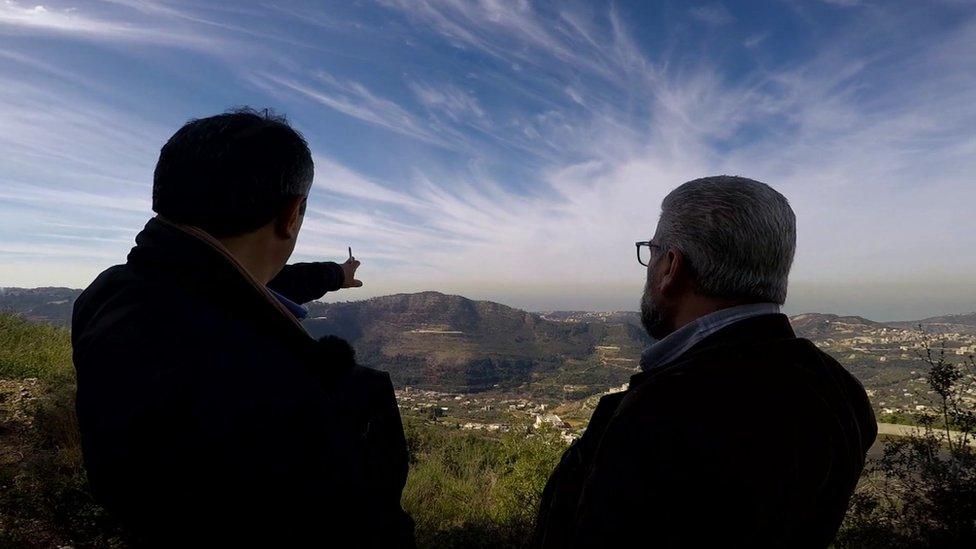Lebanon election: Hezbollah leader declares 'victory'
- Published
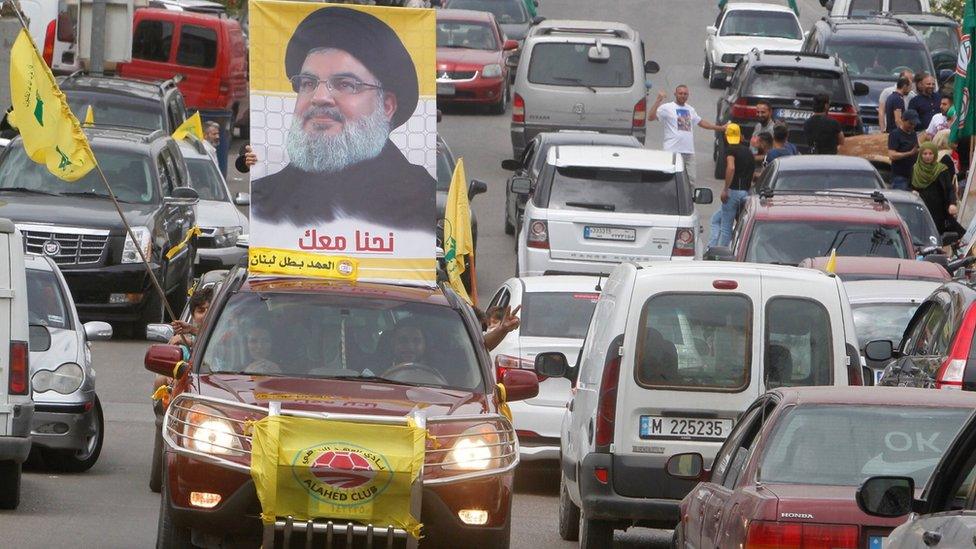
Hezbollah and its allies are reported to have made significant gains in parliament
Hezbollah's leader says the Iran-backed militant Shia group and its allies have achieved "victory" in Lebanon's first parliamentary elections since 2009.
Although the official results have not been announced, Hassan Nasrallah said their gains guaranteed the protection of the "resistance" against Israel.
Sunni Prime Minister Saad Hariri said his Western-backed Future Movement had lost a third of its seats.
Mr Hariri is still expected to be asked to form a new unity government.
But analysts said he would emerge a weaker figure, and be even less able to exert influence over Hezbollah than he was in the past.
A power-sharing system stipulates that the prime minister should be a Sunni Muslim, the speaker of parliament a Shia and the president a Maronite Christian.
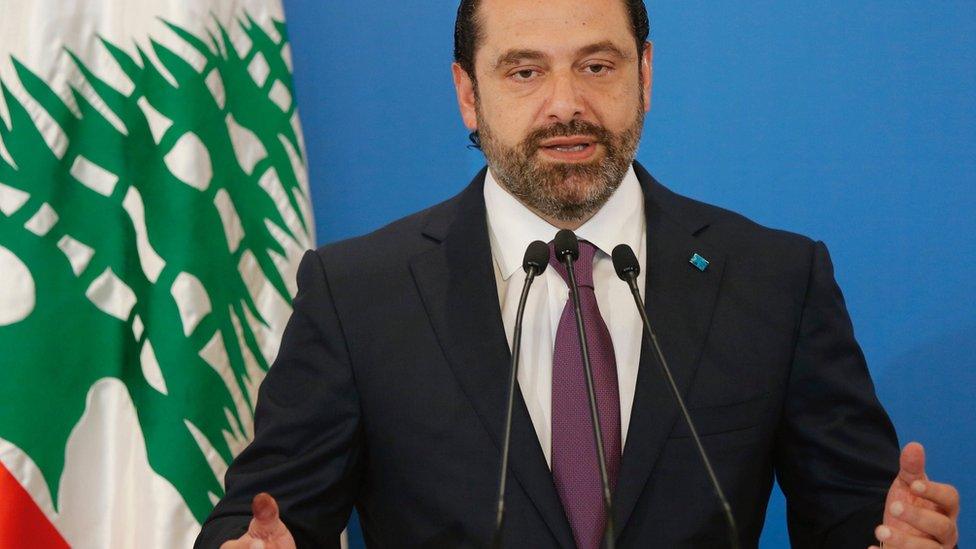
Saad Hariri pledged to work with other factions to secure Lebanon's "political stability"
In a televised address a day after the elections, Hassan Nasrallah declared what he called a "great political and moral victory for the resistance option that protects the sovereignty of the country".
He did not say how many seats his group and its allies had secured, but said the aim of their election campaign had been "achieved and accomplished".
Reuters news agency said a tally based on preliminary results showed Hezbollah and its allies had won at least 67 of the 128 seats in parliament, external. But the number of Hezbollah MPs was little changed at around 13.
Formed as a resistance movement during the Israeli occupation of Lebanon in the early 1980s, Hezbollah is today a political, military and social organisation that wields considerable power in the country.
It is designated a terrorist group by Western states and Israel, with which it fought a war in 2006, and several of its members are accused of being behind the 2005 assassination of Mr Hariri's father Rafik - himself a former Lebanese prime minister.
Mr Hariri said his party had ended up with 21 seats, down from 33 nine years ago.
"We had hoped for a better result, it's true. And we were hoping for a wider bloc, with a higher Shia and Christian representation, that's also true," he added. "But everyone could see that the Future Movement was facing a project to eliminate it from political life."
Despite the results, Mr Hariri pledged to "to participate in securing political stability and to improve the lives of all the Lebanese".
An Israeli minister said the election results meant Lebanon and Hezbollah were indistinguishable.
"The state of Israel will not differentiate between the sovereign state of Lebanon and Hezbollah, and will view Lebanon as responsible for any action from within its territory," Naftali Bennett wrote on Twitter.
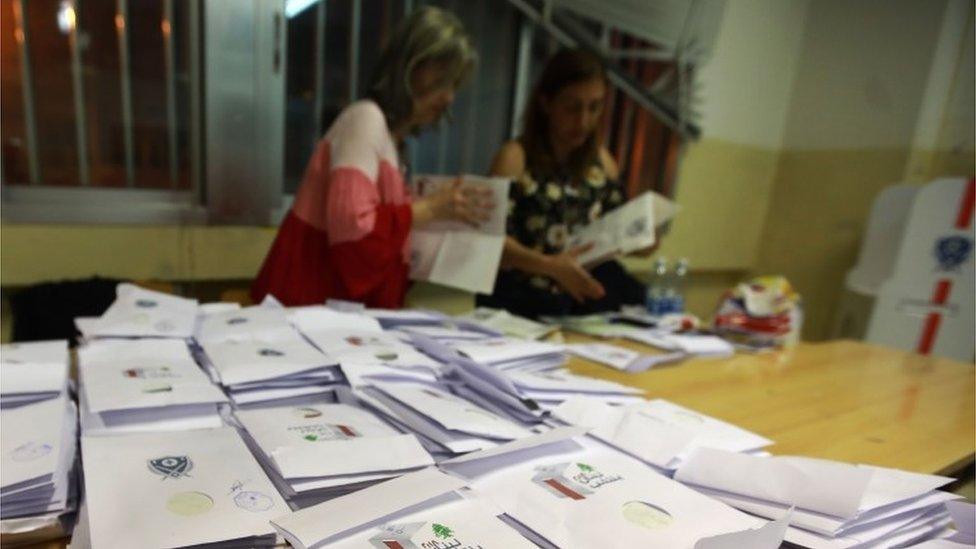
Turnout was only 49.2% on Sunday, down from 54% nine years ago
Lebanon should have held elections in 2013, but MPs extended their terms several times because parties could not agree on a new electoral law.
The new law redrew constituency boundaries and changed the system from first past the post to proportional representation in an attempt to encourage voting.
However, turnout among the 3.6 million eligible voters was only 49.2% on Sunday, down from 54% nine years ago.
Mr Hariri blamed the reduced turnout on the complexities of the new electoral law. "The problem with this election: a lot of people didn't understand it," he said.
The elections were also the first since the start of a civil war in Syria in 2011.
More than a million refugees have fled to Lebanon since then, swelling the population by 25% and overwhelming public services.
Hezbollah has also sent thousands of its fighters to Syria to support forces loyal to President Bashar al-Assad in battles against predominantly Sunni rebel forces and the jihadist group Islamic State (IS).
- Published10 January
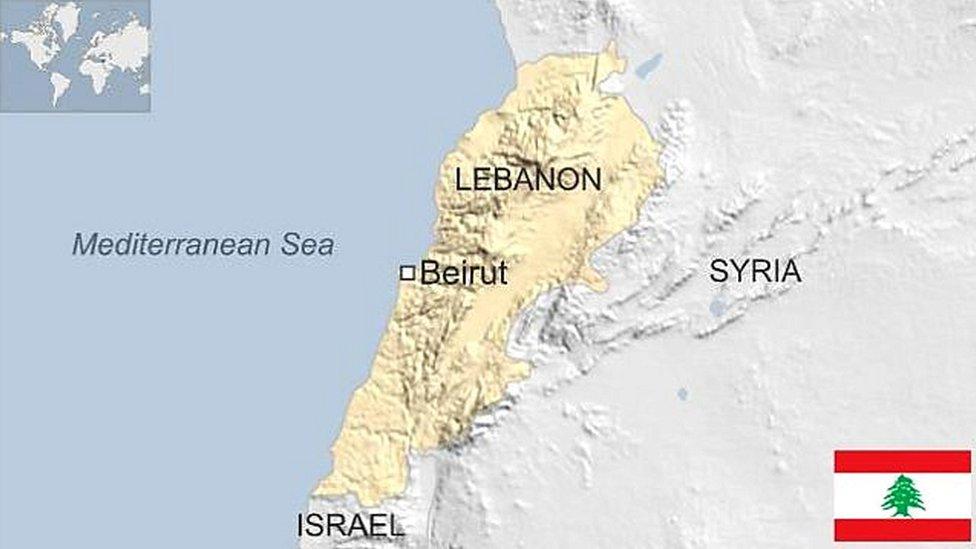
- Published30 April 2018
